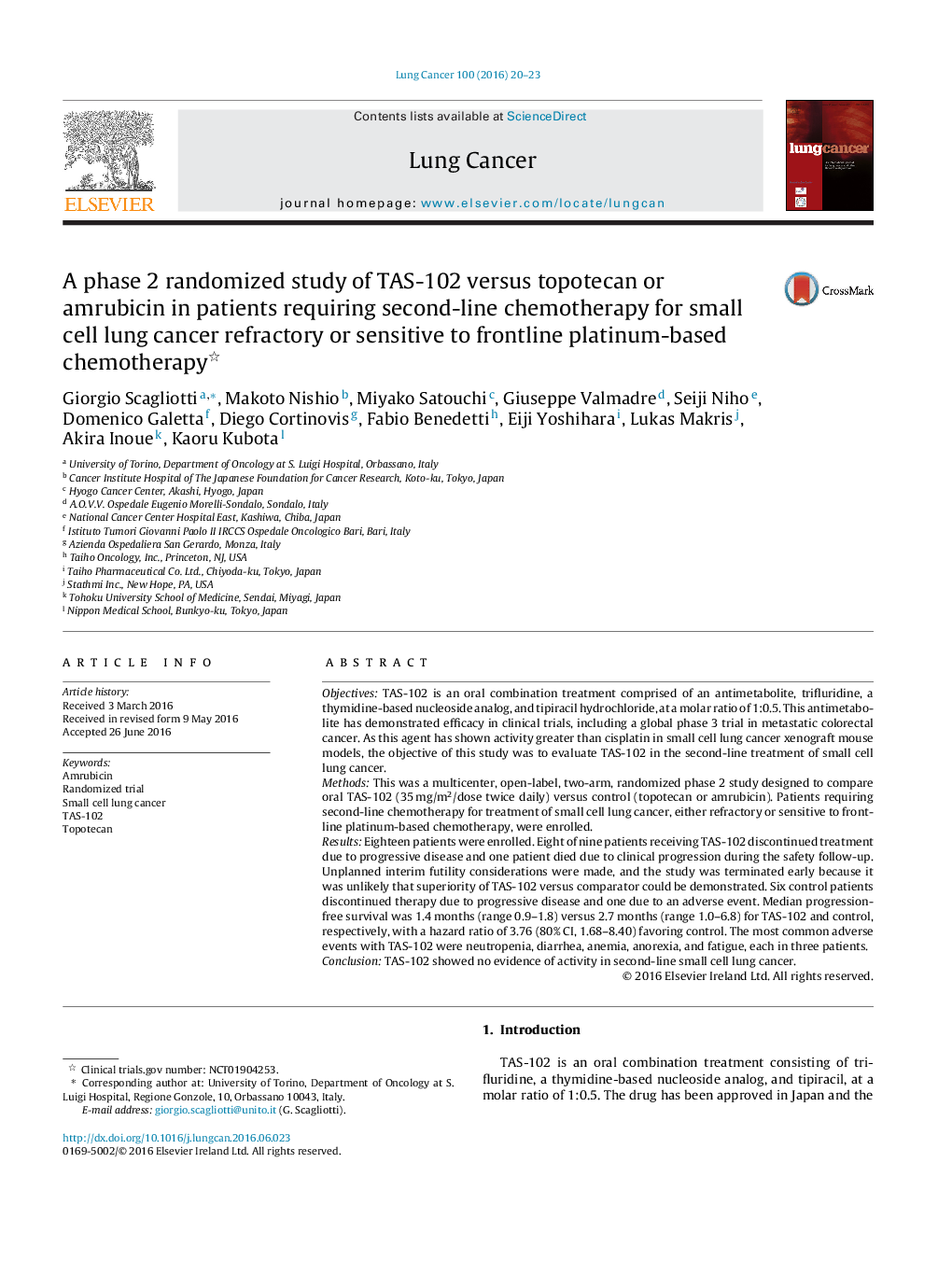| کد مقاله | کد نشریه | سال انتشار | مقاله انگلیسی | نسخه تمام متن |
|---|---|---|---|---|
| 2140391 | 1547967 | 2016 | 4 صفحه PDF | دانلود رایگان |
• There is a large unmet need of second-line options in small cell lung cancer (SCLC).
• TAS-102 is an oral combination of trifluridine and tipiracil hydrochloride.
• TAS-102 showed greater activity than cisplatin in SCLC xenografts.
• TAS-102 activity in second line SCLC was tested in a phase II study.
• TAS-102 showed no evidence of activity in second-line SCLC.
ObjectivesTAS-102 is an oral combination treatment comprised of an antimetabolite, trifluridine, a thymidine-based nucleoside analog, and tipiracil hydrochloride, at a molar ratio of 1:0.5. This antimetabolite has demonstrated efficacy in clinical trials, including a global phase 3 trial in metastatic colorectal cancer. As this agent has shown activity greater than cisplatin in small cell lung cancer xenograft mouse models, the objective of this study was to evaluate TAS-102 in the second-line treatment of small cell lung cancer.MethodsThis was a multicenter, open-label, two-arm, randomized phase 2 study designed to compare oral TAS-102 (35 mg/m2/dose twice daily) versus control (topotecan or amrubicin). Patients requiring second-line chemotherapy for treatment of small cell lung cancer, either refractory or sensitive to frontline platinum-based chemotherapy, were enrolled.ResultsEighteen patients were enrolled. Eight of nine patients receiving TAS-102 discontinued treatment due to progressive disease and one patient died due to clinical progression during the safety follow-up. Unplanned interim futility considerations were made, and the study was terminated early because it was unlikely that superiority of TAS-102 versus comparator could be demonstrated. Six control patients discontinued therapy due to progressive disease and one due to an adverse event. Median progression-free survival was 1.4 months (range 0.9–1.8) versus 2.7 months (range 1.0–6.8) for TAS-102 and control, respectively, with a hazard ratio of 3.76 (80% CI, 1.68–8.40) favoring control. The most common adverse events with TAS-102 were neutropenia, diarrhea, anemia, anorexia, and fatigue, each in three patients.ConclusionTAS-102 showed no evidence of activity in second-line small cell lung cancer.
Journal: Lung Cancer - Volume 100, October 2016, Pages 20–23
